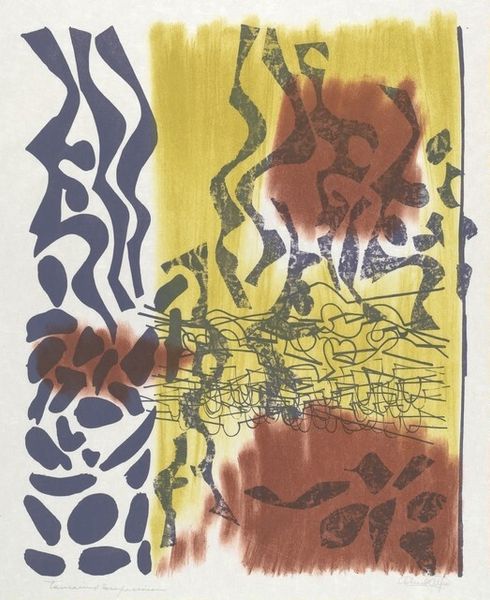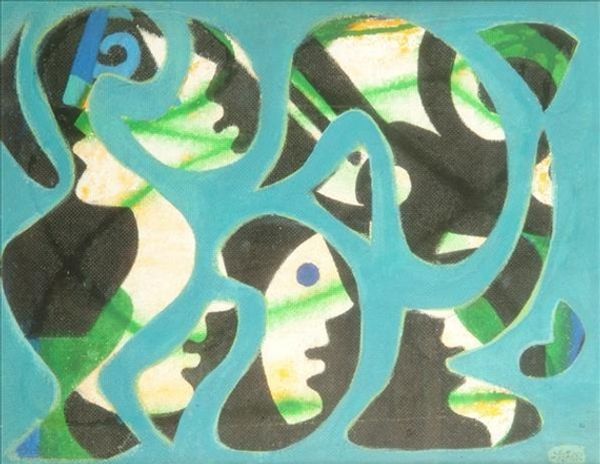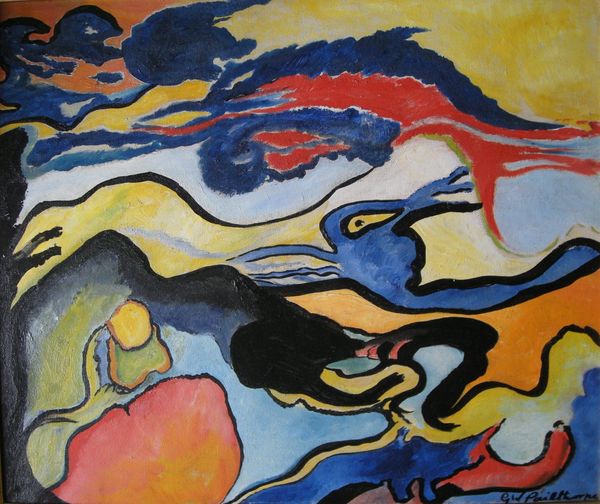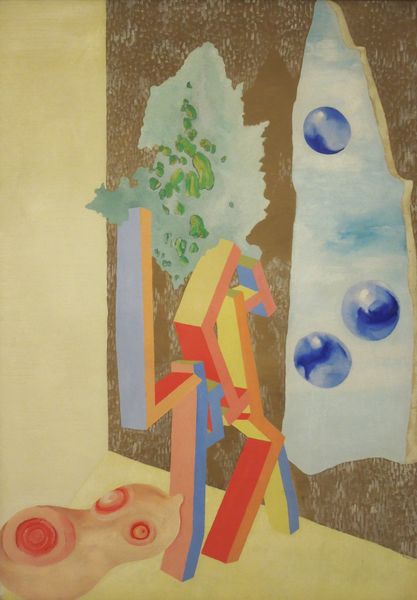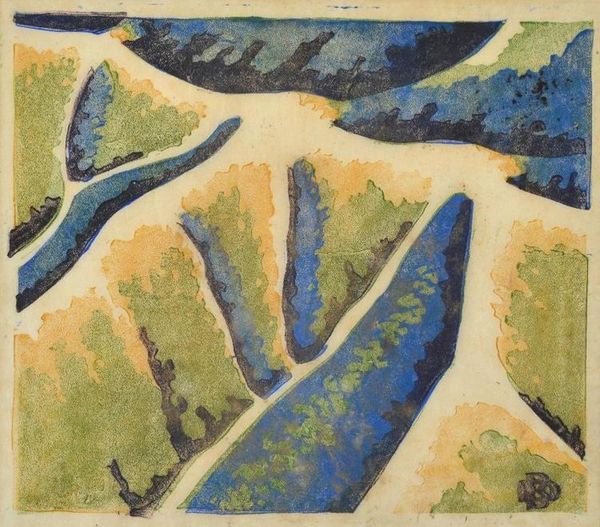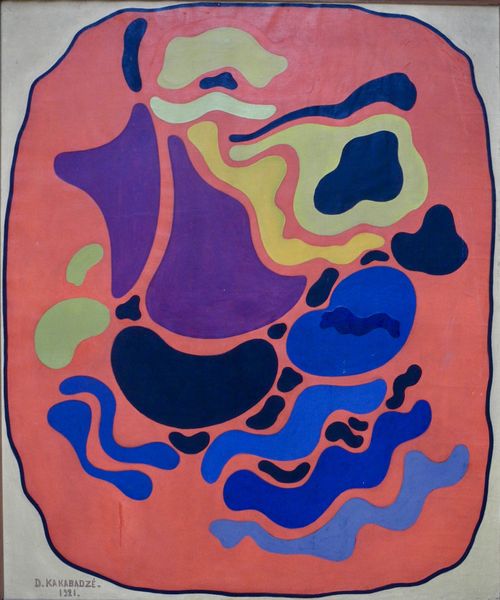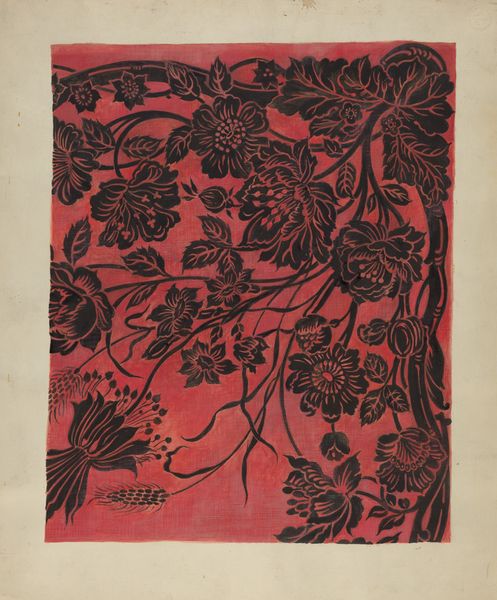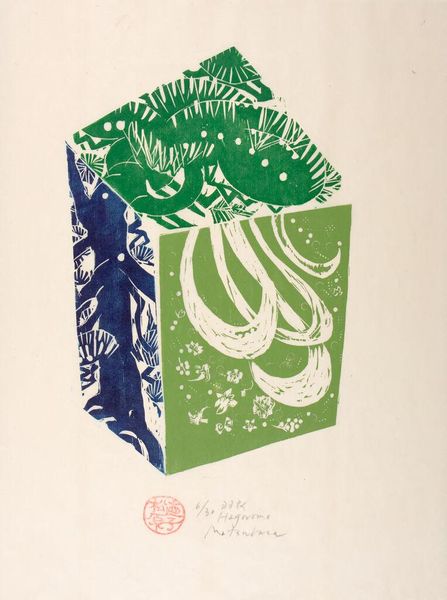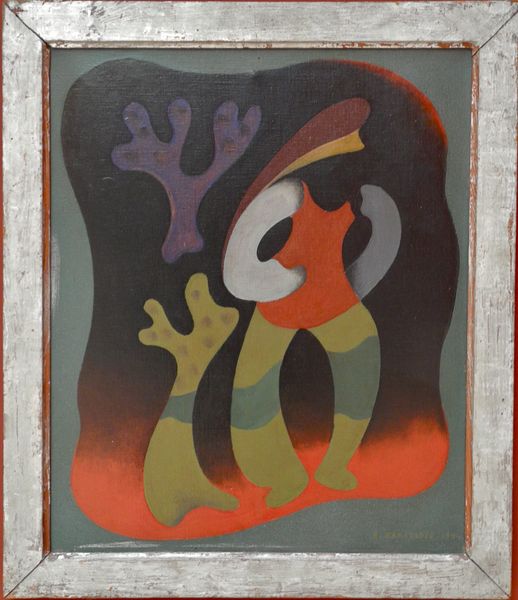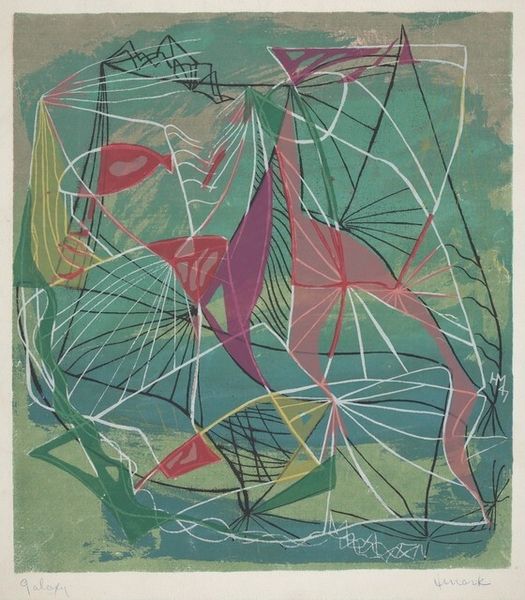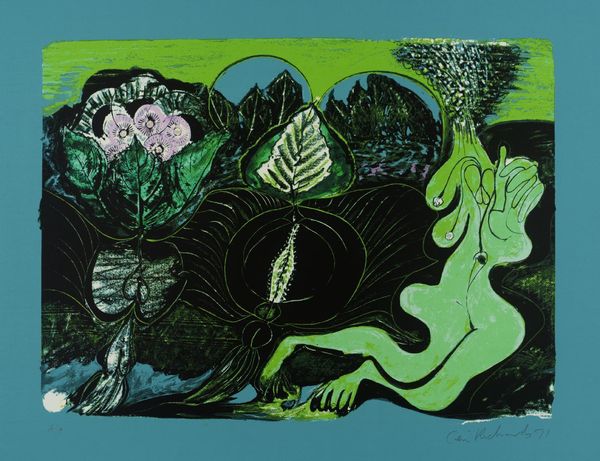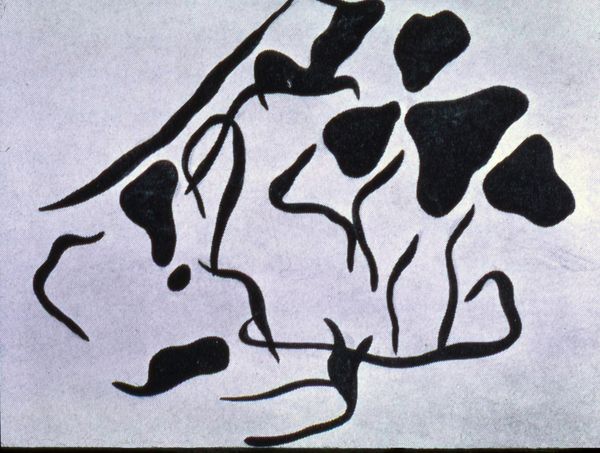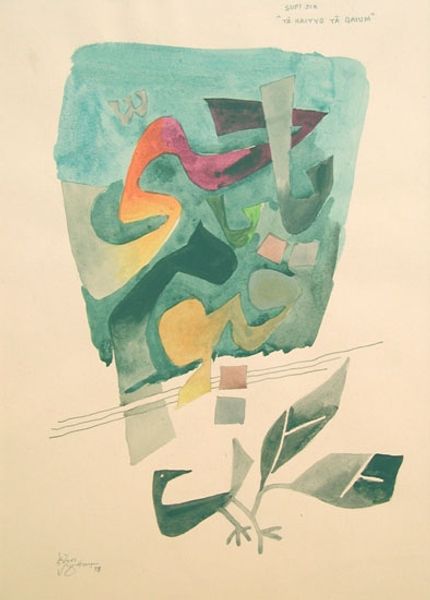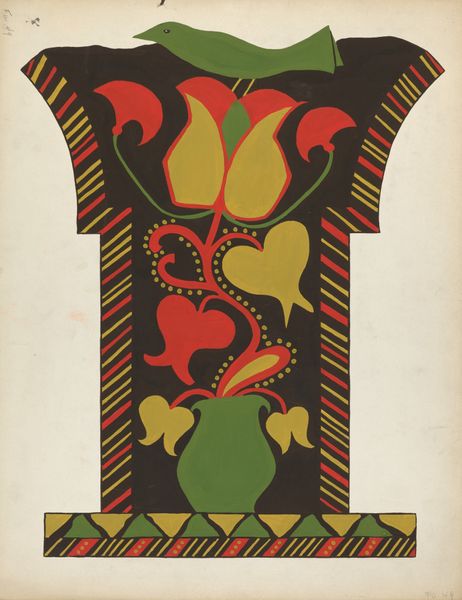
watercolor
#
water colours
#
pattern
#
figuration
#
watercolor
#
geometric
#
watercolour illustration
#
modernism
#
watercolor
Copyright: Jean David,Fair Use
Editor: This is Jean David's "Illustration for Haggadah of Pesach," created around 1970, and made with watercolor. It's got a rather striking, graphic quality to it, almost like a poster. The figures are quite stylized, almost abstract. What catches your eye when you look at this? Curator: I immediately consider the materiality of watercolor and its connection to ritualistic practice. The thin, almost translucent washes speak to a specific mode of production—one requiring careful layering and precision. Do you think the choice of watercolor could be linked to its accessibility as a medium, making art creation part of the cultural tradition being depicted? Editor: That’s an interesting point, I hadn't considered the democratizing aspect of the materials themselves. I suppose that makes the artistic process accessible to more people. Curator: Precisely! It prompts a question about the labour involved. Who created this image and under what circumstances? Was this a communal effort, blurring the lines between artist and artisan? Considering the repetitive patterns, could we even consider this a precursor to digital reproduction, a commentary on mass production within a ritualistic context? Editor: Mass production in a religious text? It is an unexpected observation. It makes me wonder, how did the availability of different materials and modes of production during that time influence the visual language of Jewish culture? Curator: That is precisely what I was hinting at. Watercolors allowed for mass production. Understanding that mass production allows for affordability to a community opens a world of opportunities that may not have been available previously. What did we learn? Editor: That considering art through the lens of materials and production opens up avenues of interpretation relating the work to a broad cultural environment.
Comments
No comments
Be the first to comment and join the conversation on the ultimate creative platform.
